by Sandra Gulland | Dec 10, 2013 | Adventures of a Writing Life |
I’ve caught shortlist fever. It’s irresistible—this impulse to sum up the year.
I will begin with the books I gobbled up and which made a lasting impression. It’s a very odd mix this year of wise, irreverent, profoundly sad and profoundly lurid. (Compare it to the well-rounded list for 2012.)
Note: Not included is my very long list of sometimes eccentric research titles.
And so here, in no particular order:

Tiny Beautiful Things: Advice on Love and Life from Dear Sugar, by Cheryl Strayed. I loved Strayed’s Wild last year, and so ventured onto her advice-column book, which I loved even more. My daughter loved it too. Strayed is wild and wise and calls it like it is.
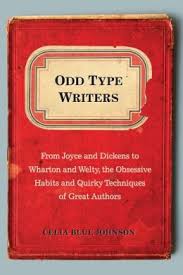
Odd Type Writers: from Joyce and Dickens to Wharton and Welty, the Obsessive Habits and Quirky Techniques of Great Authors, by Celia Blue Johnson: inspiring and gossipy and fun. Every writer on your gift list would love this book … and buy one for yourself while you’re at it.

Paris, I love you but you’re Bringing Me Down, by Rosecrans Baldwin: about my favourite city, very funny. It’s not for people who are new to Paris, but for those who know it well.
Two memoirs that will stay with me forever because of their brave, sad and striking beauty, are:
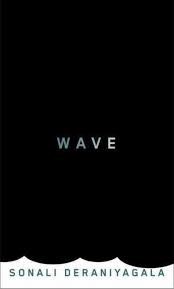
Wave, a memoir by Sonali Deraniyagala. Read this book; it will open your heart. It’s a profoundly moving book about unbearable grief. That sounds scary, but trust me: this is a beautiful book.
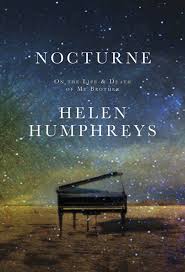
Nocturne: On the Life and Death of My Brother, by Helen Humphries; Humphries is one of my favourite writers, and this is a stunningly beautiful and heartfelt memoir.
Now to the fiction shortlist, followed by my essential apps… Stay tuned.

by Sandra Gulland | Oct 10, 2013 | Adventures of a Writing Life, Recommended Books, Movies, Podcasts, etc., The Game of Hope, The Writing Process, Work in Process (WIP) |
When I was asked by Penguin US if I would be interested in reading Salley Vickers’ new novel, The Cleaner of Chartres, of course I said yes. I’d read Miss Garnet’s Angel by her, and enjoyed it very much.
 The Cleaner of Chartres is more unusual, more challenging in structure, but has something of the same charmingly old-fashioned feel to it. (I kept thinking Balzac.) I both loved this novel and struggled with it, and in the end I adored it.
The Cleaner of Chartres is more unusual, more challenging in structure, but has something of the same charmingly old-fashioned feel to it. (I kept thinking Balzac.) I both loved this novel and struggled with it, and in the end I adored it.
The novel unfolds in the present (in Chartres, France), and in various other French cities in the past (Evreux, Rouen, Le Mans), revealing by stages the life of one woman, Agnes, the cleaner of the title.
Agnes is an able if mysterious young woman with a talent for sorting and cleaning, a vocation that pulls her into the messy lives of a number of people—and, in the process, complicates her own.
There are mysteries throughout: I won’t spoil it for you by revealing what these are, but suffice it to say that in coming to Chartres, Agnes is trying to escape a troubling past.
This is a gentle novel, peopled with charming eccentrics. Vickers is a polished writer with a charming sense of humour: I love the texture of her prose. My one reservation (and the cause of the struggle mentioned above) is that since there are a number of different characters in each city, I had to keep notes on who was where. A cast of characters would have helped, and a map would have been a pleasant addition as well.
I was especially delighted with the Afterword, where Vickers explains what happened to some of her fictional characters. As if—and yes, I do believe it so—they all went on living. A lovely touch.
“Realism with a subtle fairytale quality,” said the Publishers Weekly reviewer, and that captures it perfectly. Vickers is a wonderful novelist.
Life update: I’m preparing for Canadian Thanksgiving—a big event here!—and for heading to our winter home in San Miguel de Allende, Mexico, not long after. (See my last blog post on what that entails.)
The last draft of the Hortense Young Adult is tucked away until early November. In the meantime, in the early creative hours, I’m giving some thought to the premise, tag and log lines, using the guidelines from a worthwhile 3-session on-line course on “Rapid Story Development,” using, among other things, Enneagrams, a method for analyzing character.*
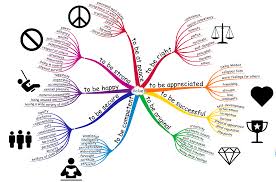
Enneagrams are complex, but intriguing: I do love learning systems. Simply framing a premise with the help of the class guidelines has helped me see how the story needs to be changed.
Another thing I’m studying right now is the Lenormand method of foretelling the future—a type of Tarot which is surprisingly popular.
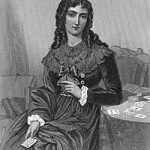 Madame Lenormand was a contemporary of Josephine Bonaparte; in fact, she lived close to Josephine’s delightfully eccentric aunt Fanny. Lenormand was famous for her accurate predictions; she exploited and enhanced her fame by becoming a prodigious writer and publisher on matters occult, as well of a faux memoir of Josephine (a “memoir” that has always intrigued me).
Madame Lenormand was a contemporary of Josephine Bonaparte; in fact, she lived close to Josephine’s delightfully eccentric aunt Fanny. Lenormand was famous for her accurate predictions; she exploited and enhanced her fame by becoming a prodigious writer and publisher on matters occult, as well of a faux memoir of Josephine (a “memoir” that has always intrigued me).
Madame Lenormand is unlikely to be a character in my Hortense novels, but her card-fortunetelling method might well be. In any case, I’m enjoying exploring the cards.

At some point, “playing” the cards was called The Game of Hope, my current working title—and one I rather like.
The calligraphy image at the top is from the wonderful Bibliodyssey blog.
* The rapid story development course mentioned above is no longer online, but there is an excellent book on the subject now: Rapid Story Development: How to Use the Enneagram-Story Connection to Become a Master Storyteller by Jeff Lyons. Unfortunately, it’s extremely expensive, even in Kindle format. With luck, you should be able to get it through a library. If you use Amazon.com, you can rent the Kindle edition for under $10.
by Sandra Gulland | Mar 1, 2011 | Adventures of a Writing Life |
(Note: I wrote this post on March 1st—but, not yet being used to WordPress, failed to publish it to the blog correctly. Lo siento!)

Yesterday I finished reading the novel Wrecker by Summer Wood.
First, you have to envy a woman with such a great name. Second, you can fairly easily predict that she has hippy roots.
I’m in the depths of writing now, and I find it difficult to find novels with a sufficiently enchanting voice to snare my restless spirit. This one did from the first page.
I’ve converted to reading books on my iPad, but I’m going to buy at least one print copy of this novel to pass around to friends. Yes: it’s that good. I want to shout about it ? once I come out from under its spell, which lingers.
The subject of the story is the rearing of a motherless boy?three years old at the opening of the novel and eighteen at the end?by what I would call an “intentional” (i.e. communal) community in the far reaches of northern California. It’s a dramatic, heart-rending and?yes, it’s fair to say?ultimately a happy story, although the word happy seems woefully inadequate to describe its fullness of heart.
The back-to-the-land setting is authentic, which I found refreshing. The author clearly loves each and every one of her characters. They are flawed; they are profoundly heroic. Wrecker, the boy at the core, is … well, he’s quite “a package.” As he matures, the word beautiful is often used to describe him. I don’t think I’ve ever read a novel that captures a male spirit—both its tenderness and strength—so well: in a boy, in a teen, in a man.
What I do not see mentioned in the reviews (so far)—and it’s something I found exceptional in this novel—is the voice, that elusive intelligence that informs literary fiction. As a writer, I’d call it jaw-dropping prose. Sorry, that’s not very elegant: but there it is. Pace, details, dialogue: all spare, all rich and perfectly enchanting.
It’s hard to single out examples, but I’ll slip in a few sentences from the first page:
Len stood waiting for his life to change.
Okay, you have to admit that’s a wonderful line.
He was a skinny man with a long face that showed its creases despite the stubble on his chin and cheeks …
I can picture this man?can’t you?
…and he kept moving his hands from the brim of his cap to the pockets of his jeans as thought he couldn’t be held responsible for what they might do if left unsupervised.
A great image, original and telling.
In an interview, Summer Wood said that it took her close to a decade “of intermittent work, and many many drafts, and reams of discarded pages to get this novel finished.” It shows in the craft.
Her mother charmingly weighs in here, and here’s the trailer.
If you read this novel—and I hope you do—let me know what you think.
(Afternote: Although I bought the e-book edition, I have just ordered it in hardcover as well so that I can share it with my friends.)
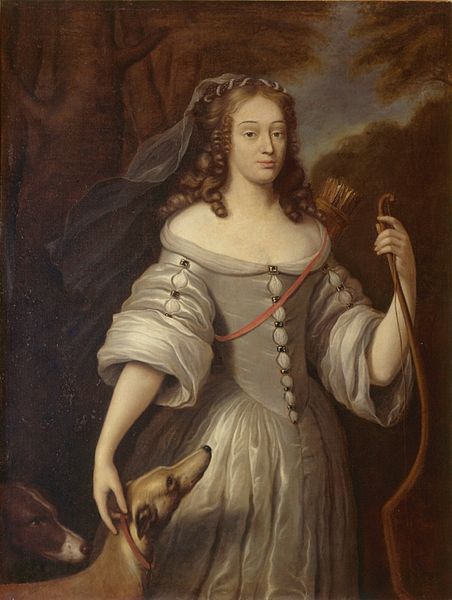
by Sandra Gulland | Jan 31, 2008 | Adventures of a Writing Life |
In four weeks my novel, Mistress of the Sun, will be officially published in Canada (U.S. publication will be in June). The time before a novel comes out are always hard. Will readers like it?
Believe me, it’s never easy. Over a decade ago, when I was just starting out, and piling up the rejection letters, Jane Urquhart—a wonderful best-selling Canadian author—told me: “Get used to it.” If it ain’t rejections, it will be reviews.
But getting “used to it” entails lots of nail-biting. Which is why sincere and unexpected enthusiastic responses mean so much. I had one such yesterday, a note from Bernard Turle on my Mistress of the Sun FaceBook page.
An endorsement from Bernard is extra-special because he was the wonderful French translator of the Josephine B. Trilogy. I’m not French, yet I write historical novels about French history, so I’m always concerned about how a French reader is going to respond.
Here is what Bernard so kindly wrote:
“I love Mistress of the Sun and I hope I shall do the French translation for my favorite publisher in Paris. I am so glad Sandra has chosen to work on women of silent power. I heard from her long ago that she was working on La Lavalliere and I so much enjoyed translating the Josephine trilogy that I was very keen and of course I enjoyed every minute of the reading. La Lavalliere is less known than other royal mistresses and the novel is a welcome addition to the literature on her. Among many other qualities, I like the point of view from which one sees history : through her : not in the light, not in the shadow, just in between. I sympathize with that position, which is typically a translator’s position.”
I love his phrase, “women of silent power.” Thank you, Bernard, mille fois.









 Madame Lenormand was a contemporary of Josephine Bonaparte; in fact, she lived close to Josephine’s delightfully eccentric aunt Fanny. Lenormand was famous for her accurate predictions; she exploited and enhanced her fame by becoming a prodigious writer and publisher on matters occult,
Madame Lenormand was a contemporary of Josephine Bonaparte; in fact, she lived close to Josephine’s delightfully eccentric aunt Fanny. Lenormand was famous for her accurate predictions; she exploited and enhanced her fame by becoming a prodigious writer and publisher on matters occult, 


